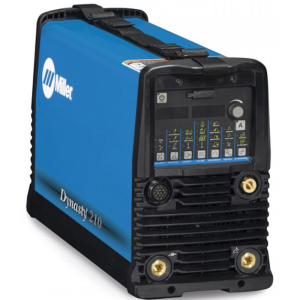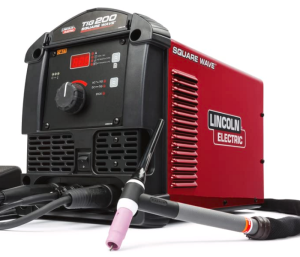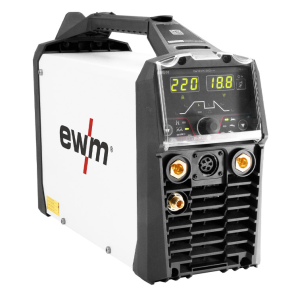Welding aluminum can be tricky. With aluminum’s conductive and corrosion-resistant properties, it requires specialized equipment and techniques compared to steel. Finding the right aluminum TIG welder is key to achieving quality welds on aluminum projects.
The Best Aluminum TIG Welders
When looking for an aluminum TIG welder, key factors to consider include:
- AC/DC Capabilities: AC is needed for aluminum.
- High frequency starts for aluminum.
- Precise amperage control.
- Quality components and construction.
Based on these criteria, here are my top picks for aluminum TIG welders:
Miller Dynasty 210 DX

The Miller Dynasty 210 DX is a popular, mid-range AC/DC TIG welder excellent for aluminum. It provides a smooth, stable arc and advanced AC waveform control for optimized aluminum welds.
Lincoln Electric Square Wave TIG 200

The Lincoln Electric Square Wave TIG 200 is an affordable AC/DC inverter-based aluminum welder. It uses Lincoln’s Squarewave technology for a focused arc cone and great AC welding performance.
EWM AGILON 200

The EWM AGILON 200 is a premium AC/DC TIG welder made in Germany. It’s engineered for high duty cycle welding and provides excellent arc stability for top-quality aluminum welds.
Product Overviews
Miller Dynasty 210 DX
The Miller Dynasty 210 DX provides 210 amps of AC/DC TIG welding power. It utilizes Insight Core technology and advanced AC waveform control for optimized aluminum welding. The machine is compact and portable with a clear, informative display. It’s engineered for reliability and consistent performance in demanding welding environments.
Lincoln Electric Square Wave TIG 200
Lincoln’s Square Wave TIG 200 is a 200 amp AC/DC TIG welder. It uses Lincoln’s patented Squarewave technology to produce a focused arc cone and great AC balance for aluminum. This lightweight, portable machine is easy to set up and use. It delivers exceptional aluminum welding capabilities at an affordable price point.
EWM AGILON 200
The EWM AGILON 200 provides 200 amps of AC/DC TIG welding power. Engineered in Germany, it’s built on EWM’s Agilon platform for optimized digital control and efficiency. It’s designed for high duty cycle welding and provides excellent arc stability and accuracy. The AGILON 200 excels at welding aluminum with quality and consistency.
Technical Specifications
| Welder | Amps | Input Power | Duty Cycle |
|---|---|---|---|
| Miller Dynasty 210 DX | 210 Amps | 230V 1-Phase | 150A @ 60%, 210A @ 20% |
| Lincoln Electric Square Wave TIG 200 | 200 Amps | 230V 1-Phase | 160A @ 60%, 200A @ 40% |
| EWM AGILON 200 | 200 Amps | 230V 1-Phase | 170A @ 60%, 200A @ 40% |
Features and Benefits
| Welder | Key Features | Benefits |
|---|---|---|
| Miller Dynasty 210 DX |
|
|
| Lincoln Electric Square Wave TIG 200 |
|
|
| EWM AGILON 200 |
|
|
Pros and Cons
Miller Dynasty 210 DX
Pros:
- Advanced AC waveform technology for great aluminum welding performance
- Digital controls and Insight Core technology for a stable, optimized arc
- Excellent arc stability and accuracy
- Auto-balance and auto-postflow settings
- Fan-on-demand cooling system reduces noise and energy use
Cons:
- Higher price point than competitors
- Foot pedal not included
Lincoln Electric Square Wave TIG 200
Pros:
- Squarewave technology provides great AC welding performance
- Simple controls and portable size
- Very affordable price point
- Delivers great AC balance for aluminum
- High frequency starts make arc initiation easy
Cons:
- Less precise amperage control than pricier models
- Lower duty cycle rating than Miller or EWM
- No auto-balance or auto-postflow
EWM AGILON 200
Pros:
- Engineered for superior arc stability and accuracy
- Agilon technology enables optimized, efficient performance
- High duty cycle rating for continuous welding
- Intuitive multi-setting control panel
- Quality German engineering and components
Cons:
- High price point
- Heavy weight compared to other portables
Frequently Asked Questions
What thickness of aluminum can an aluminum TIG welder handle?
Most aluminum TIG welders can handle material from 22 gauge up to 3/8 inch thickness. The welders featured here can all weld aluminum from thin gauge up to 1/4 inch.
What amperage do I need for welding aluminum?
For aluminum you’ll want an AC/DC TIG welder with at least 150 amps of power. 170-210 amps is ideal for quality aluminum welds on material up to 1/4 inch thickness.
Is AC or DC better for aluminum TIG welding?
You need an AC welder for aluminum. The alternating current provides the cleaning action needed to weld reactive aluminum. Some AC/DC welders allow you to fine tune the AC waveform for optimized aluminum welding.
What size TIG torch do I need?
For most aluminum welding, a 17V or 26V size TIG torch is recommended. The top aluminum welders featured here come with a 17V or 26V torch.
What size generator is required?
These welders can all run on 230V single phase input power. For generator use, a 5000W generator or larger is recommended to have sufficient power.
What’s the difference between inverter and transformer welders?
Inverter welders are smaller, more portable, and more energy efficient. They provide better arc performance through advanced electronics. Transformer welders are often more rugged and can output higher amps, but are less portable.
Conclusion
When selecting an aluminum TIG welder, consider your budget, portability needs, and the type of welding you’ll be doing. The Miller Dynasty 210 DX is a top choice for its advanced controls and smooth arc performance, though it comes at a premium price point. The Lincoln Electric Square Wave TIG 200 provides great value for aluminum welding at a budget-friendly cost. For those looking for premium performance, the EWM AGILON 200 is engineered in Germany for optimized aluminum welds. Any of these welders can help you achieve high quality, consistent aluminum TIG welds.
Leave a Reply